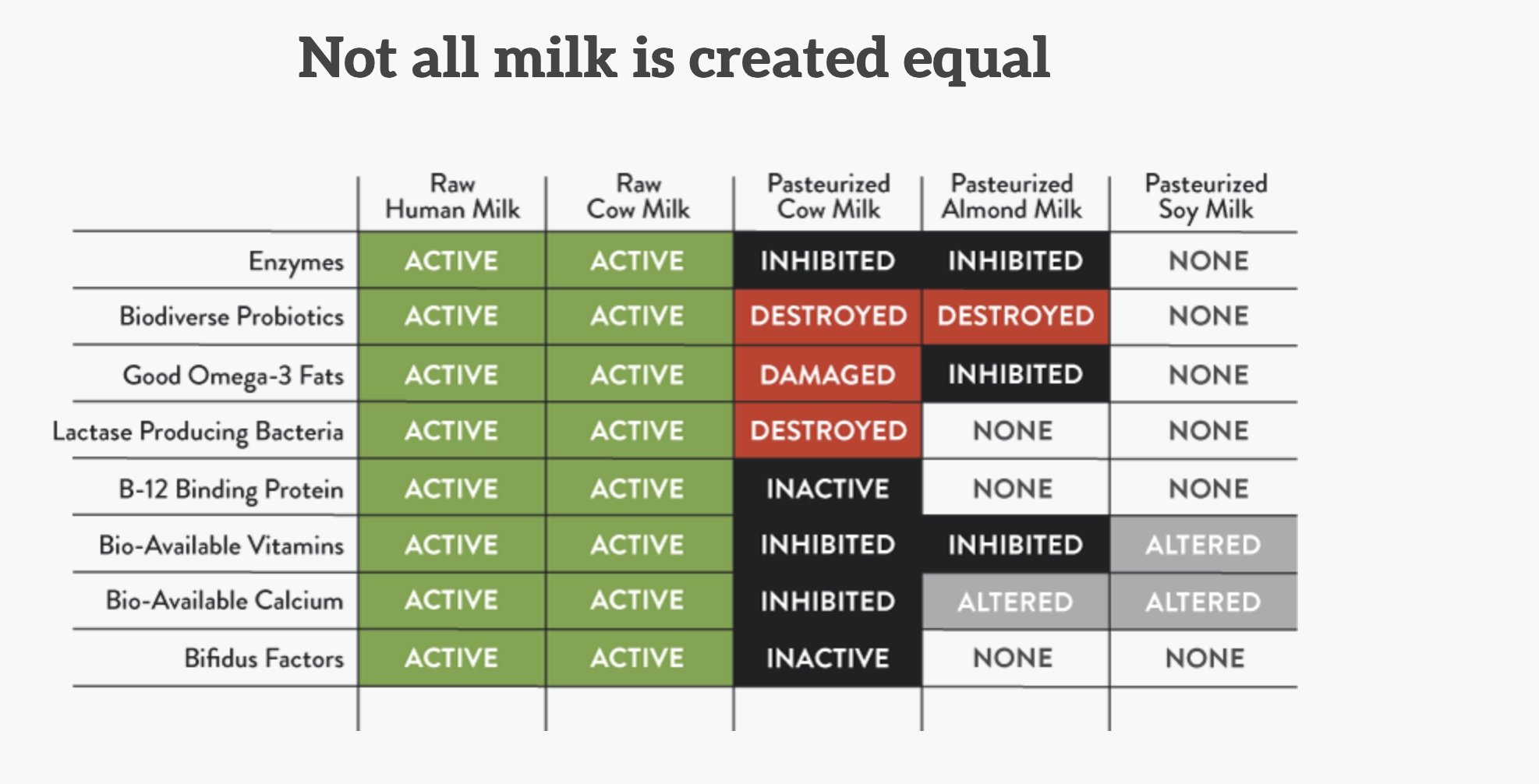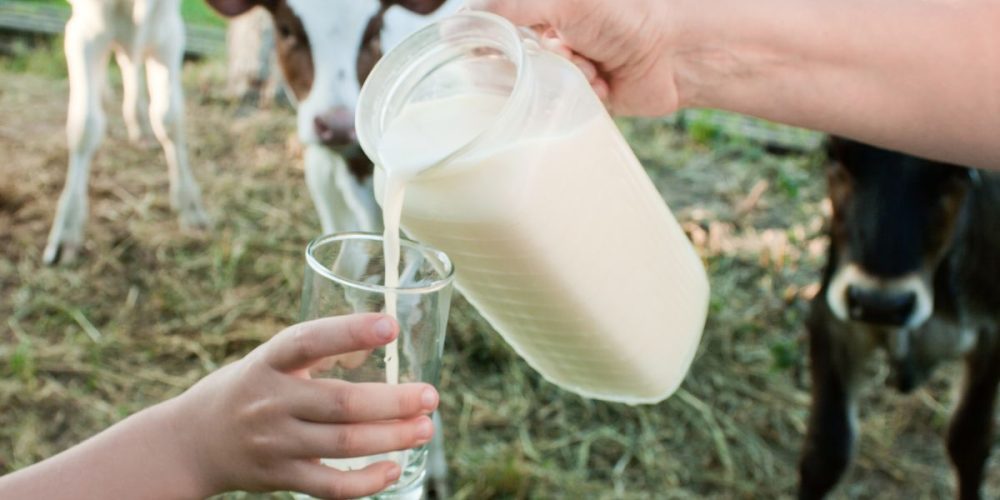X Community Notes appear to be biased against raw milk after notes appeared on pro-raw milk posts.
Many tweeters have been hoofing it to raw milk recently as numerous new milk mavens discover the unpasteurized beverage. Case Bradford is one popular raw milk man, and he frequently posts short updates about the product’s increasing availability in his area in California, The Dallas Express previously reported.
However, these posts are frequently hit with community notes warning of the supposed dangers of raw milk. One such instance came in the form of a recent post from Bradford.
Fifteen different raw milk options
available on the shelf at the store3 block walk away.
Every American should have this level of access to healthy nourishing food and local raw milk. pic.twitter.com/mJ3TdvHqEf
— Case Bradford (@casbrad) August 29, 2024
When Bradford tweeted, “Fifteen different raw milk options available on the shelf at the store 3 block walk away. Every American should have this level of access to healthy nourishing food and local raw milk,” his comment was met with a note about Listeria.
“Raw milk consumption is linked to a number of foodborne illnesses that can result in serious complications and death. Drinking or eating products made from raw milk can expose people to germs such as Campylobacter, Cryptosporidium, E. coli, Listeria, Brucella, and Salmonella,” the note said before attaching a link to a CDC webpage.
The CDC article mostly describes the process by which pasteurization uses extended periods of heat to kill bacteria and viruses.
Bradford found this note to be outrageous.
Absolutely insane for a community note to say, “Raw milk consumption is linked to a number of foodborne illnesses…”
? Rate that note as ‘not helpful’
Overwhelming majority (well over 99.9999%) of raw milk consumption is linked with:
• Abundant Nutrition
• Strong bodies… https://t.co/c3wGNyMTSr— Case Bradford (@casbrad) September 8, 2024
“Absolutely insane for a community note to say, ‘Raw milk consumption is linked to a number of foodborne illnesses…’ Rate that note as ‘not helpful’ Overwhelming majority (well over 99.9999%) of raw milk consumption is linked with:
• Abundant Nutrition
• Strong bodies + bones
• Amazing immunity
• Deliciousness
• High energy
• Good mood
Please downvote this note and share with people who care,” he said.
While it is true that unpasteurized milk can contain pathogens, it is unclear what this has to do with Bradford merely noting that the product has become more available.
Moreover, as Doug Haveman, a small-scale rancher near San Antonio, previously told The Dallas Express, the problem with Texas’ laws restricting raw milk sales is that “the laws were developed before refrigeration.”
Haveman also previously told DX that farmers like him, who overwhelmingly produce much of the raw milk consumed in the Lone Star State, have the highest incentives to protect the health of their small list of direct-to-consumer clients because any bad word of mouth or lawsuit from a contaminated product could drive small farms into bankruptcy.
The note and the lone cited source do not include information about the damage that pasteurization can cause to the milk’s nutrients.
A table from Redmond Farms, a Utah-area raw milk producer, illustrates some of the nutritional loss.

“During the pasteurization process important key enzymes are killed that support a healthy gut and immune system,” an entry below the table reads.
It continues, “Probiotics are microorganisms that support nutrient absorption and protect you from bad microorganisms. Pasteurization kills the beneficial bacteria.”
“When cows are given their natural diet, the milk they produce is high in omega-3 fats, creating a near perfect ratio of omega-3 to omega-6 fats. Our modern diet puts a lot of strain on our bodies, often leaving us with far more omega-6 than omega-3 fatty acids. Omega ratio imbalance can lead to inflammation that many doctors suspect to be at the root of the most troubling illnesses of our time,” it says as it lays out the various benefits of raw milk and explains the table.
The FDA challenges a variety of proclaimed benefits to raw milk and takes issue with the probiotic element specifically.
“Bacteria found in raw milk are not probiotic. Probiotic microorganisms must be non-pathogenic (Teitelbaum and Walker, 2000). In contrast, raw milk can host various human pathogens, including E. coli…,” an agency advisory says. “Probiotic microorganisms must be of human origin in order to have an impact on human health (Teitelbaum and Walker, 2000).”
Later, the advisory says, “Raw milk is not an immune system-building food and is particularly unsafe for children.”
It uses an instance of two children getting sick in California in 2006 to support this notion.
However, in contrast, a death directly attributable to raw milk in Texas in recent memory is hard to find. Meanwhile, there is a nationwide recall over Boar’s Head deli meat that allegedly led to 9 fatalities and 57 hospitalizations in what the CDC said was the largest listeriosis outbreak since more than 30 people died from contaminated cantaloupe in 2011.
One responder to Bradford’s condemnation of the community note was FAFO Farms. FAFO Farms is an account for a central Texas farm known for its work in regenerative agriculture, and it frequently responds to Bradford’s tweets about raw milk.
FAFO responded with a headline that read, “Pasteurized milk couldn’t stop the largest dairy-related outbreak in history” from GetRawMilk.com. This headline and story referred to a study from The New England Journal of Medicine that estimated 224,000 people were infected with salmonella from ice cream in Minnesota in September 1994.
These parties and others, including Elon Musk and Congressman Thomas Massie (R-Kentucky), had previously swapped barbs over raw milk, DX reported.
Community Notes is a program X started initially to combat alleged “misinformation.” The democratized fact-checking is supposed to overcome the bias and errant nature of the COVID-era fact-checkers that dominated Twitter. It aims to “create a better-informed world by empowering people on X to collaboratively add context to potentially misleading posts. Contributors can leave notes on any post and if enough contributors from different points of view rate that note as helpful, the note will be publicly shown on a post,” according to X’s website.
Occasionally, Community Notes will become their own story, despite the fact that they are intended only to give context.
We’re lucky turkeys would never do this to us—you don’t have to do it to them, either.
Art by @freebison pic.twitter.com/StSJlbxgte
— PETA (@peta) November 22, 2023
When PETA tweeted, “We’re lucky turkeys would never do this to us—you don’t have to do it to them, either,” just before Thanksgiving Day, along with an image of a decapitated human being served for dinner, the Community Note famously read, “Turkeys are not vegetarians. Turkeys eat mice, lizards, frogs, and just about anything they can fit in their mouth. If turkeys were larger or had the technological means to farm and eat humans, their current diet reveals they likely would.”


